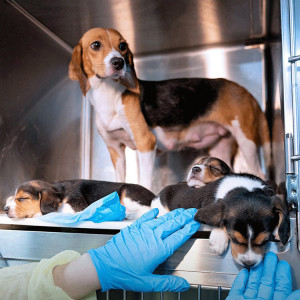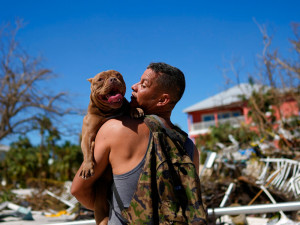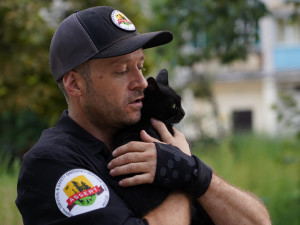California Is the First State to Ban Testing of Chemicals on Cats and Dogs
The U.S. has a long way to go when it comes to ending what Gov. Gavin Newsom calls “cruel and unnecessary testing.”
On September 26, California Gov. Gavin Newsom signed a bill opens in new tab into law that bans testing unnecessary pesticides, chemical substances, food additives, and similarly harmful industrial and consumer products on dogs and cats. The law goes into effect Jan. 1, 2023.
“For many families, including my own, pets are beloved companions that enrich our lives every day,” Newsom said in a statementopens in new tab. “I’m proud to sign this legislation to advance our state’s leadership on animal welfare by ending cruel and unnecessary testing on dogs and cats, among other measures to protect the health and safety of pets in California.”
State Sen. Scott Wiener (D-San Francisco) authored the bill, known as the Prohibiting Extraneous Testing Actopens in new tab (PET Act) that has made California the first state to ban this kind of testing.
Besides being a win for California, this news comes at a relevant time for animal testing in the U.S. In July, 4,000 opens in new tab Beagles were rescued from the Envigo breeding and research facility in Cumberland, Virginia. Following an investigationopens in new tab by the U.S. Department of Agriculture (USDA), the Humane Society of the United States (HSUS) ordered the removal of all the Beagles.
How much do you spend on your pet per year?
Per NPR, according to Sens. Mark Warner and Tim Kaineopens in new tab of Virginia, the facility had “performed unnecessarily painful medical procedures on dogs and puppies — including euthanasia without a sedative.”
Following the rescue of the Beagles, Kinship spoke to some of the fosters parents who were looking after the dogs. From what they described, many of the pups took a long time to adjust to regular life after their abuse.
“Everything is brand new. Eating from a bowl was brand new,” Beagle foster parent Cindy Kent said of her fosters’ experiences. “While the average puppy born into the world is used to sounds like a lawn mower or car or coming home [and] turning on the television — it’s brand new for these pups.”
While this new legislation in California is a step in the right direction, there is no nationwide ban on animal testing. As of February, eight states — California, Hawaii, Illinois, Maine, Maryland, Nevada, New Jersey, and Virginia — have banned cosmetic testing on pets, but the Humane Cosmetics Actopens in new tab, introduced by Sens. Cory Booker (D-NJ) and Rob Portman (R-OH) and co-sponsored by Sens. Collins (R-ME) and Jacky Rosen (D-NV) has yet to pass in Congress.
According to the HSUopens in new tab S, 42 countries have passed legislation to ban or limit cosmetic animal testing: “every country in the European Union, Australia, Colombia, Guatemala, Iceland, India, Israel, Mexico, New Zealand, Norway, South Korea, Switzerland, Taiwan, Turkey, the United Kingdom and several states in Brazil.”
If you would like to help end animal testing — cosmetic and otherwise — in your state, contact your representatives. You should also check out the HSUS’s Be Cruelty-Free campaign by donating hereopens in new tab.







